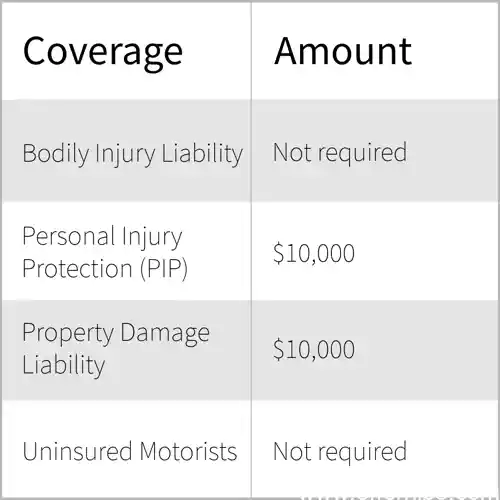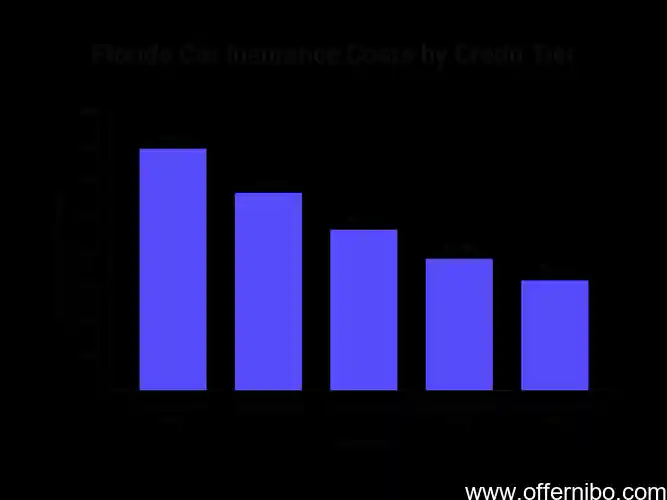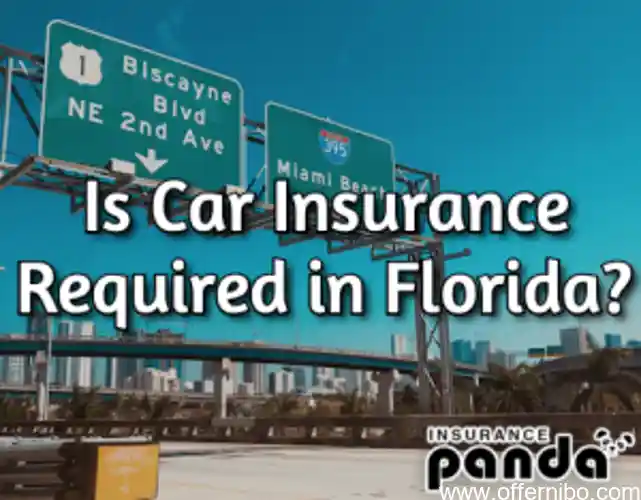Navigating the intricacies of Florida’s car insurance laws can be daunting, but understanding the consequences and requirements is crucial for your safety and financial well-being. In this comprehensive guide, we will delve into the essential aspects of car insurance in Florida, empowering you with the knowledge to make informed decisions. Explore the potential penalties and legal implications of driving uninsured, discover exceptions to the insurance mandate, and learn how to obtain and verify coverage. We will also shed light on the advantages of maintaining car insurance, ensuring that you are not only compliant with the law but also protected from financial burdens in the event of an accident. Embrace the responsibility of car ownership and ensure your peace of mind by gaining a thorough understanding of Florida’s car insurance regulations through this informative guide.
What Are the Consequences of Driving Without Car Insurance in Florida?

If you’re a Florida resident, you’re probably aware that driving without car insurance is a major no-no. But do you know the consequences of getting caught uninsured? They’re not pretty. In the Sunshine State, driving without insurance can lead to hefty fines, license suspension, and even jail time—not to mention the financial burden of paying for damages out of pocket if you’re involved in an accident. So, before you hit the road, make sure you have adequate car insurance coverage. It’s not just the law; it’s also your best bet for protecting yourself and your loved ones in the event of an accident.
Penalties and Fines Associated with Driving Uninsured
Driving without car insurance in Florida is not only against the law but also carries severe consequences that could impact your finances, driving privileges, and even your freedom. Being caught behind the wheel uninsured can result in hefty fines, escalating to thousands of dollars. Furthermore, you risk having your driver’s license suspended or revoked, making it impossible for you to legally operate a vehicle. In addition, your uninsured vehicle may be impounded, adding to your financial burden. These penalties serve as a strong reminder that car insurance is not just a legal requirement but also a crucial safeguard for you, your passengers, and others on the road.
Potential Impact on Driver’s License and Vehicle Registration
Driving without car insurance in Florida can result in severe consequences that impact both your finances and your driving privileges. Familiarize yourself with the penalties and fines associated with driving uninsured, as well as the potential consequences for your driver’s license and vehicle registration. These penalties can range from hefty fines to vehicle impoundment, so it’s crucial to avoid driving without insurance to protect yourself from these legal repercussions. Remember, car insurance plays a vital role in safeguarding you financially in the event of an accident and ensures your compliance with state laws.
Exceptions to the Car Insurance Requirement in Florida

When it comes to driving in Florida, understanding the nuances of its car insurance laws is paramount to avoid potential legal and financial repercussions. While the Sunshine State mandates that all drivers carry car insurance, there are certain exceptions to this rule. If you’re a new resident or a traveler passing through, you may qualify for a temporary exemption from the insurance requirement. Additionally, specific types of vehicles and drivers, such as antique cars or farm equipment, may also be exempt. It’s crucial to familiarize yourself with these exceptions and ensure that you meet the necessary criteria to legally operate a vehicle without insurance in Florida. Remember, staying informed and compliant with the law not only protects you financially but also contributes to a safer driving environment for all.
Temporary Exceptions for New Residents and Travelers
Are you required to have car insurance in Florida? Yes, in most cases, you do. However, there are a few exceptions to this rule. If you are a new resident of Florida, you have 10 days to obtain car insurance. If you are a visitor from out of state, you may be able to drive your uninsured vehicle for up to 90 days. Additionally, certain types of vehicles are exempt from the car insurance requirement, such as golf carts and mopeds. Finally, some drivers may be exempt from the car insurance requirement if they can prove financial responsibility through other means.
Exemptions for Certain Types of Vehicles and Drivers
Are you required to have car insurance in Florida? Generally speaking, yes. But there are a few exceptions to this rule. For instance, if you’re a new resident of Florida, you have 10 days to obtain insurance after establishing residency. Additionally, if you’re just visiting the state, you may not need to get insurance as long as you have coverage in your home state.
Certain types of vehicles and drivers are also exempt from the car insurance requirement. For example, antique vehicles, golf carts, and mopeds don’t need to be insured. And if you’re driving a rental car, the insurance provided by the rental company typically covers you.
How to Obtain Car Insurance in Florida

When it comes to driving in Florida, having adequate car insurance is not just a suggestion – it’s a legal requirement. Failing to maintain insurance can lead to serious consequences, potentially jeopardizing your finances, driving privileges, and even your freedom. So, how can you ensure you’re adequately covered? Obtaining car insurance in Florida is a straightforward process that involves finding an insurance provider, comparing quotes, and choosing a policy that aligns with your specific needs.
Finding an Insurance Provider and Comparing Quotes
Are you required to have car insurance in Florida? Yes, it’s mandatory for all drivers in the Sunshine State. Obtaining car insurance in Florida is a straightforward process that ensures you’re protected financially and legally while on the road. Finding an insurance provider is as easy as a few clicks or phone calls, and comparing quotes from multiple companies allows you to find the best coverage at a price that fits your budget. Understanding your coverage options and determining your specific needs is crucial to ensure you’re adequately protected in the event of an accident. Remember, car insurance is not just a legal requirement but also a wise investment in your financial well-being and peace of mind.
Understanding Coverage Options and Determining Your Needs
Car insurance is a legal necessity in Florida, but understanding your options can be overwhelming. Start by finding an insurance provider that meets your needs and budget. Compare quotes from multiple companies to ensure you’re getting the best deal. Next, determine your coverage needs. Liability insurance is the minimum required by law, but you may want additional coverage, such as collision or comprehensive, to protect your vehicle and yourself in case of an accident. Make sure you understand the coverage options and the costs associated with them. Finally, finalize your policy and provide proof of insurance to the state by carrying your insurance card in your vehicle at all times. Maintaining car insurance not only protects you financially and legally, but also gives you peace of mind knowing that you’re covered in the event of an unexpected situation.
Verifying Car Insurance Coverage in Florida

When it comes to driving, having car insurance is not just a smart move—it’s a legal requirement in Florida. But if you’re caught behind the wheel without it, what are the consequences? And are there any exceptions to the rule? In this article, we’ll cover everything you need to know about car insurance in the Sunshine State, including how to verify coverage and what happens if you fail to provide proof of insurance.
Methods for Proving Insurance at Traffic Stops
Sure, here is the paragraph about verifying car insurance coverage in Florida:
When you’re pulled over by the police, one of the first things they’ll ask for is proof of insurance. In Florida, you are required to have car insurance, and if you don’t have it, you could face some serious consequences.
There are a few different ways to prove that you have car insurance. You can show the officer your insurance card, or you can provide them with your insurance policy number. If you don’t have either of those things, you can call your insurance company and have them verify your coverage over the phone.
If you fail to provide proof of insurance, you could be fined up to $500. You could also have your license suspended for up to three months. In addition, your car could be impounded.
It’s important to always have proof of insurance in your car. If you don’t, you could end up paying a hefty fine.
Here are some additional tips for verifying car insurance coverage in Florida:
- Keep your insurance card in your car at all times.
- If you lose your insurance card, you can get a new one from your insurance company.
- If you have any questions about your insurance coverage, you can call your insurance company.
Consequences of Failing to Provide Proof of Insurance
When pulled over by law enforcement, you’ll need to provide proof of insurance. This can be done in several ways. You could show a physical copy of your insurance card, display it electronically on your phone, or provide the officer with your insurance company and policy number. It’s crucial to have this information readily available to avoid potential penalties. If you fail to provide proof of insurance, you may face consequences such as fines, impoundment of your vehicle, or even a suspended license. It’s essential to maintain continuous car insurance coverage to safeguard yourself from these adverse outcomes. Remember, driving without insurance is not only illegal but also exposes you to financial risks and legal repercussions. Ensure you’re adequately insured to protect yourself, your passengers, and other drivers on the road.
Benefits of Maintaining Car Insurance in Florida
Are you required to have car insurance in Florida? If so, why? Maintaining car insurance in Florida provides you with a safety net of protection in the event of an accident. It safeguards you from financial ruin should you cause damage to another person or their property. Without insurance, you may be held personally liable for the costs of repairs, medical bills, and even legal fees. Furthermore, driving uninsured in Florida carries severe penalties, including fines, license suspension, and even jail time.
Protection from Financial Liability in Accidents
Maintaining car insurance in Florida offers you several advantages. Imagine driving without a safety net, financially exposed to the consequences of accidents. Car insurance acts as your guardian angel, protecting you from potential financial ruin should you find yourself in an unfortunate situation. By adhering to state law and carrying car insurance, you demonstrate your commitment to responsible driving and safeguard your financial well-being. Furthermore, maintaining insurance ensures your compliance with legal requirements, shielding you from penalties and fines. Think of car insurance as an investment in your peace of mind, allowing you to drive with confidence, knowing you’re covered in the event of unforeseen circumstances.
Legal Compliance and Avoidance of Penalties
Maintaining car insurance in Florida not only safeguards you financially but also ensures your compliance with the law. Imagine driving down the road without a safety net—that’s what it’s like to drive uninsured. An accident can leave you vulnerable to exorbitant repair costs, medical bills, and even lawsuits. Car insurance acts as your financial fortress, protecting you from these unforeseen expenses. By carrying insurance, you’re not just fulfilling a legal obligation; you’re investing in your own peace of mind. Rest easy knowing that if the unexpected happens, you’ll have a financial cushion to rely on. So, why take unnecessary risks? Secure your financial well-being and drive with confidence by maintaining car insurance. It’s the smart and responsible choice for every Florida driver.
Q1. Are you legally required to have car insurance in Florida?
Ans: Yes, Florida law requires all drivers to have car insurance.
Q2. What is the minimum car insurance coverage required in Florida?
Ans: Florida requires a minimum of $10,000 in personal injury protection (PIP) and $10,000 in property damage liability (PDL) coverage.
Q3. What are the penalties for driving without car insurance in Florida?
Ans: Driving without car insurance in Florida can result in fines, license suspension, and/or vehicle impoundment.
Q4. Can you get car insurance in Florida with a suspended license?
Ans: In some cases, you may be able to get car insurance in Florida with a suspended license. However, you will likely have to pay a higher premium.
Q5. What happens if you are in an accident without car insurance in Florida?
Ans: If you are in an accident without car insurance in Florida, you could be held financially responsible for any damages or injuries.
Q6. What are the benefits of having car insurance in Florida?
Ans: Car insurance can protect you financially in the event of an accident, and it can also help you save money on your auto repairs.